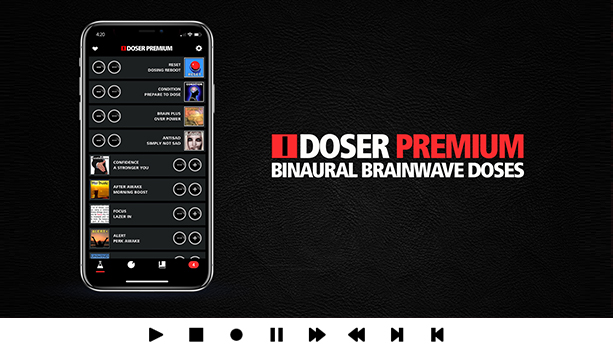Extended Intelligence

Let’s design a framework for extended intelligence. We will begin with the science of cognitive skills. Then we use the critical task of Artificial Intelligence to effectively replace human response. This is our framework for extended intelligence…
Framework for Extended Intelligence
Theoretical Extended Intelligence Framework
First of all, let’s create our theoretical framework for extended intelligence. (You know, for fun.) Also, the science of cognitive skills is involved. Certainly, you process a lot of data in your mindful life. If we are to effortlessly merge the strengths of computer cognition, we must create a synergetic pipeline between machine and brain. Even more, think how much mindful information you might process in a day: meditation minutes, REM sleep, journaling, moon phases, light or color therapy, mindful music, or whatever else you practice. Hence, our framework for extended intelligence requires data. These inputs can probably be simple human observation or sensory data. most noteworthy, this is where computers can help. Above all, the critical task of artificial intelligence is to effortlessly process these data points and make intelligent observations or recommendations.
Existing Extended Intelligence Frameworks
Maybe you already have a framework for extended intelligence and don’t even realize it. An example is listening to mindful audio induction through an app that tracks your mindful minutes. Furthermore, maybe a sleep system that tracks your hours of REM sleep. Similarly, do you count calories or time workouts? Certainly, there are countless examples. We all own an incredibly powerful computer in the form of our brain. In our framework for extended intelligence we should offload tasks from our busy brain – anything that can be more easily handled by artificial intelligence. Consequently, the more advanced our systems, the faster the data can be processed. Hence, the wider our pipeline becomes. We certainly shouldn’t need vast knowledge in the science of cognitive skills to have processed recommendations made to us. Above all, this is the critical task of artificial intelligence.
Extended Intelligence Frameworks Efficiency
First of all, we understand there are countless data points in our life, ones we recognize and don’t. Furthermore, we understand this data can’t, and shouldn’t, be processed by our busy brains. Consequently, this information should be stored and processed by computers. Most noteworthy, this handling efficiency is the critical task of artificial intelligence. We certainly can’t be expected to understand the science of cognitive skills. Furthermore, we have to be able to understand the output of this efficient processing. Our theoretical framework for extended intelligence would require knowledgeable people for categorizing and confirming data. Therefore, there must be an initial integration into an artificial intelligent agent. This should probably be the only role of a human in our system: Initial classification, programming, and confirmation. The logic of our computer system would certainly allow for progressive examination and authentication of future results.
Science of Cognitive Skills
Experience Cognitive Skill
While we might not be the knowledgeable human that teaches our artificial intelligent agent, let’s pretend. Above all, a basic understanding on the science of cognitive skills fills in the whole picture. Certainly, our framework for extended intelligence begins with the most basic cognitive skill: EXPERIENCE. Physical information imprints into the world’s most advanced cloud system, our brain. Also, the older we get, the more data we have processed, and the more knowledgeable we are. Consequently, this is our basic familiarity with experiences acquired over months or years of actual practice.
Thinking Cognitive Skill
The next cognitive skill is thinking. Above all, this is the act of processing information. Thinking forms foundation of inputs and capabilities of our framework for extended intelligence. even more, thinking is everything that the conscious mind does. This includes insight, mental calculation, retention, or imagination. Thinking is certainly conscious and active. The thinking cognitive skill can make new connections and create meaning. Those who meditate, especially with advanced technology like binaural induction, know the benefit of a mindful minute. This is the thinking cognitive skill at work. Seems like the critical task for artificial intelligence if to handle some of the thought pipeline. Even more, the science of cognitive skills begins with thought.
Domino Cognitive Skills
Let’s finish the science of cognitive skills with the dominos. Most noteworthy, the rest of our cognitive skills build on thinking and experience. Hence, they are the “domino” skills. These are also critical to our theoretical framework for extended intelligence. First of all is analysis, or investigating to comprehend relations. Furthermore, we have comprehension, or understanding how those relationships connect. Even more, intuition is a complex series of roles that run outside of visible spectrum. Intuition is a mystery and relies on being able to make connections without visible data. Audio induction technology might help with instinct skill. Finally, there is invention. Most noteworthy, this is our ability to create completely new concepts through ideas and intellectual thought. Finally, with this basic knowledge, what is the critical task of artificial intelligence in our theoretical framework for extended intelligence?
Critical Task of Artificial Intelligence
What is Artificial Intelligence?
First of all, what is AI (Artificial Intelligence) and why is everyone in talking about it? It is certainly becoming a favorite buzzword. Consequently, it is also changing almost every aspect of life. Self-driving vehicles, mindfulness tracking, robotics, customer service, utilities; all of these areas are progressing towards using artificial intelligent agents. as a result, artificial Intelligence is starting to form the backbone of major networks by providing powerful analytics and predictions. People are leveraging AI-driven tools to bring new products and services to the remotest regions and communities. AI certainly covers a wide variety of industries from cognitive science, mindfulness, to statistics and programming. What is the critical task of artificial intelligence? most noteworthy, to teach computers to reproduce human intelligence.
Artificial Intelligence Toolset
In our framework for extended intelligence, we certainly need an artificial intelligence agent. first of all, AI is our tool of choice because it can leverage the power of computer learning to replace human response. Furthermore, it can improve it with greater speed and efficiency. We have some basic implementation in mindfulness audio tracking and other analytic devices. Furthermore, we learned in the science of cognitive skills – thinking is critical! Therefore, it is crucial for efficient feedback to be effective and accurate. The goal of most artificial intelligence research is certainly not to replace human beings. Above all, an effective AI system duplicates key human intellect traits at scale, and for specific tasks.
Artificial Intelligence Abilities
Artificial intelligence abilities such as computer learning, machine vision, and prognostic models can certainly help us gain greater understanding of complex problems. Furthermore, this progression will allow our theoretical framework for extended intelligence to eventually come to reality. These future tools will probably serve human users by supplementing our existing problem-solving abilities. Also, they might also take the form of applications which have been trained with knowledgeable inputs to deliver new products and services. A great example of this is the work being done by on the mindfulness app front.

We, as humans with brains, are certainly the most critical factor in developing a framework for extended Intelligence. Our intellect is essential in developing new challenges for artificial intelligence systems to resolve. AI has almost no ability other than to control vast amounts of data and learn from its own input and output. By constructing an interesting framework for extended intelligence, human intelligence is able to create areas for an artificial agent to operate. Finally, we must work with the singular focus to augment the artificial intelligence agent by guiding information flows.
Where do you start? First of all, be aware of the data you create and your pipeline for handing that information. Look into tracking devices like watches, or sleep tracking devices. You can experiment with mindful apps like binaural induction and mindful tracking. Most noteworthy, be aware of the data you create on a daily basis. It is more than you realize.
TO ALL OUR READERS, today we humbly ask you to help our little blog. For over ten years now, BinauralBlog.com has been producing fantastic mindfulness articles. We do not beg for donations, use any intrusive popups, sell any form of user data, or fill our content with ads. How do we sustain ourselves? We need shares, plain and simple. The time has come for us to make a simple request. Please, if you enjoyed this article and want us to keep producing content - use any (or all) of the CIRCULAR SHARE BUTTONS ABOVE to help support our little blog. Thank you from the Binaural Blog, Founder & Team




I barely understand AI and now there is EI? This is a bit over my head.
Our ability to track data is amazing in these days. I am tracking my heart, steps, workouts, sleep and much more on my wrist. If you told me this 20 years ago I would have laughed. We will soon have AI devices that will be able to process and define this data on a granular level. This is what I got from this article. Thoughts?
The apps and software out there these days is really good at looking at our boring human inputs and making recommendations. I do think AI is a bit “buzzy” right now but the true players will be apparent in the next year or two.
This was great. The whole computers taking over the world when they become smarter than us always struck me as ridiculous. I hope I am not proven wrong.
I was just thinking of how much analytics I do in a single day. You listed a few. I bet I can count 100 things that throw analytical information at me every day. I personally wait with open arms for an AI to help with this.